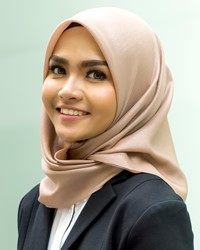Malay in China, Hong Kong

Photo Source:
Copyrighted © 2026
Faiz Zaki - Shutterstock All rights reserved. Used with permission |
Send Joshua Project a map of this people group.
|
| People Name: | Malay |
| Country: | China, Hong Kong |
| 10/40 Window: | Yes |
| Population: | 20,000 |
| World Population: | 18,869,300 |
| Primary Language: | Malay |
| Primary Religion: | Islam |
| Christian Adherents: | 0.50 % |
| Evangelicals: | 0.45 % |
| Scripture: | Complete Bible |
| Ministry Resources: | Yes |
| Jesus Film: | Yes |
| Audio Recordings: | Yes |
| People Cluster: | Malay |
| Affinity Bloc: | Malay Peoples |
| Progress Level: |
|
Introduction / History
While the Malay are spread throughout southeastern Asia, the majority are located in the country of Malaysia. There, they make up about 1/3 of the population, sharing the country with Chinese and Indian minorities. The dispersal of the Malay was in progress by the fifth century A.D. when the Malay began to dominate local trade in southeastern Asia and long distance trade between northwestern India and southern China. Their domination of sea trade continued until the 1500s and even into the European colonial period.
In addition to sea trade, some Malay may have been transported as slaves in the 1700s; others were political exiles. The most important Malay minorities live in Indonesia, Brunei, Singapore, and Thailand. In Thailand, they are the majority population of the four southernmost provinces. There are smaller communities in Madagascar, Taiwan, Myanmar, Yemen, the United Kingdom, and the southern Philippines. In these countries they may be referred to as "Coastal Malay."
The strongest characteristic of Malay identity that remains consistent regardless of their location is their adherence to the Islamic faith. Malays worldwide recognize a Malaysian law that defines a Malay as "a person belonging to any Malayan race who habitually speaks Malay (or any Malayan language) and professes the Muslim religion."
Where Are they Located?
Though most Malays live in their homeland, Malaysia and nearby Indonesia, there are others all over the world, on various continents. Most of these have a small population, including those in Hong Kong.
What Are Their Lives Like?
In general, courtesy is a very important aspect of Malay society no matter where they live. Most of their groups are loosely structured, their commitments are not strong, and loyalty to a group is not as important as being courteous. The "pure Malay" is considered to be kind towards women, children and animals; introspective; polite; slow to speak; passive; and indolent. Yet, when angered, a Malay may lose all self-control and get into a frenzy. Of course, there are many variations of what a "true Malay" is, depending on the countries in which they now live. Cleanliness is typically a feature of most Malay homes. As Muslims, they generally do not eat pork or drink alcohol.
Most Malay families consist of a husband, his wife, and their children. In Malay society, marriage is expected of every person. According to Islamic law, a man may have as many as four wives. However, most marriages are monogamous (having only one wife). Although many marriages are arranged, the consent of both parties is required. There are no descent or kinship groups among the Malay.
What Are Their Beliefs?
Islam was brought to Malaysia by Arabic and Indian traders many centuries ago, and the Malay people have come to embrace and ardently follow the Islamic faith. All Malay people are considered Islamic though levels of devotion to the religion are varied. Even those who half-heartedly follow Islam participate in the fasting month, and the Malay people of affluence will go on the pilgrimage to Mecca at least once if not many times during their lifetime.
For most Malay, the form of Islam is not very orthodox. The Malay have early roots in Hinduism and traces of this can still be seen in certain aspects of their culture such as weddings. For instance, the bride and groom will paint their hands with henna and will sit upon a platform for hours for the guests to admire.
Another divergence from Islam is the use of a bomoh (witchdoctor). Although Islam forbids the use of such a person, many Malay of Peninsular Malaysia will seek the services of a bomoh when they are experiencing a difficult situation or when they need some "magic." Also, they use bomohs for honorable or ignoble purposes. Furthermore, they consult bomohs in order to receive a blessing or a cure; or, on the other hand, in order to curse someone or get revenge.
What Are Their Needs?
The Malay people in Hong Kong need the opportunity to put their trust in Jesus Christ rather than anything else. Then they can enjoy the abundant life He offers their families and communities.
Prayer Points
Pray for workers to go to the Malay people in Hong Kong, and for their hearts to be ready to receive their Savior.
Pray for networks of believing Malay families and fellowships that will throw the doors open for others to follow Jesus.
Pray for the Lord to bless the families among the Malay people with His presence and mercy.
Pray for Bible believing fellowships and churches to multiply among the Malay people.